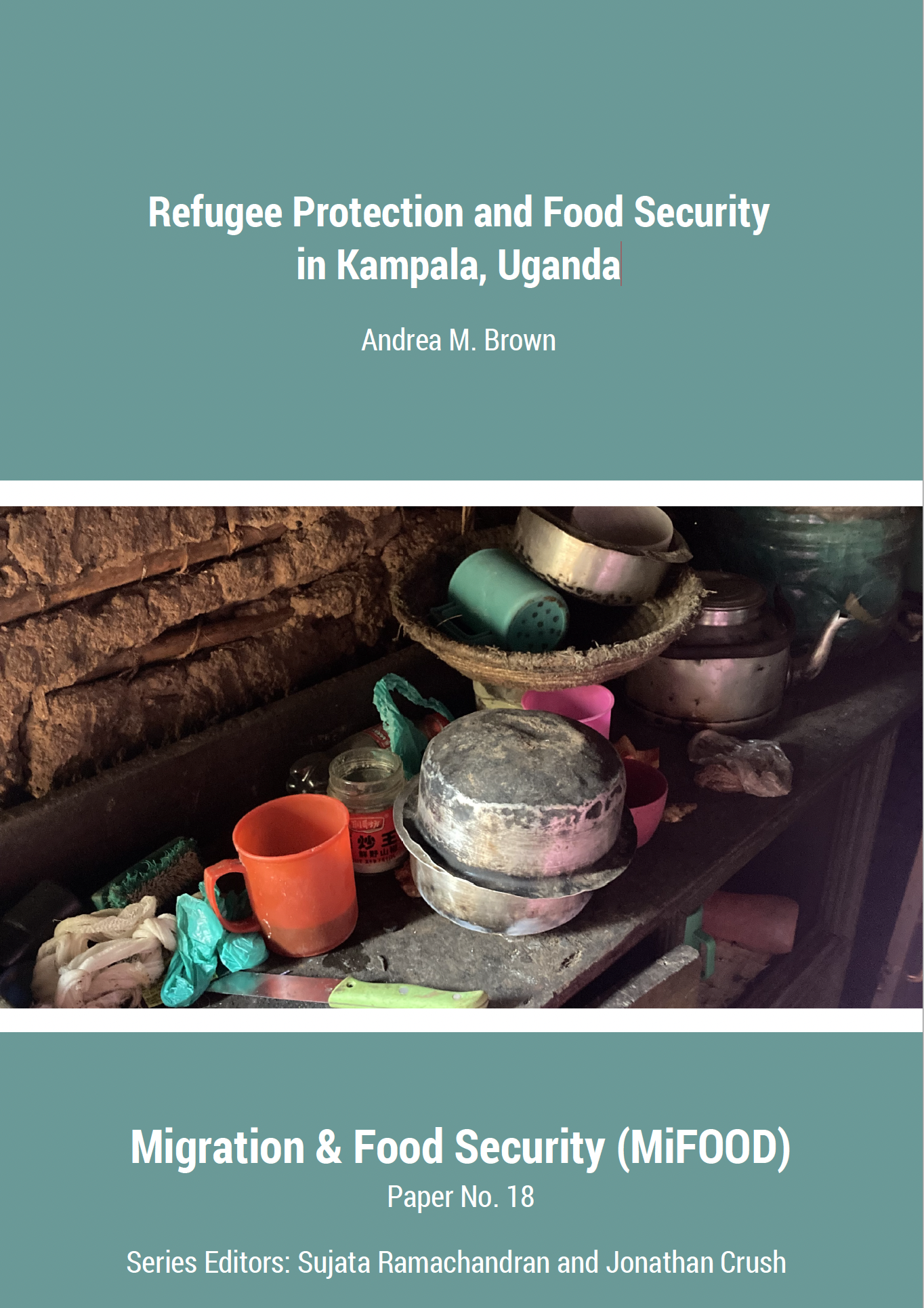This study proposes strategies to better recognize and protect the food security needs of Kampala’s refugee population. Uganda is Africa’s largest refugee host, with a policy approach that has been widely lauded for its flexible settlement provisions and commitment to durable solutions. However, growing refugee populations and underfunding have led to serious pressures, severely exacerbated during the COVID-19 pandemic. Food insecurity in designated refugee settlements is at critical levels: 75% of residents are food insecure. One unique aspect of Uganda’s refugee governance approach is the allowance of refugee populations to self-settle outside of designated camps, in the capital city, Kampala. This research takes a governance approach to explore what is being done to support the food security of this group, by who, and how this could be improved. Interviews with refugees living in two of Kampala’s large informal settlements (Kisenyi II and Namuwongo) and with a range of policy stakeholders were carried out in May 2023. Overlapping formal and informal services and programs are offered by multiple levels of government and the NGO sector, accessible to different populations living in settlements. This paper points to gaps and limitations, linked to resources, coordination, difficulties identifying vulnerable populations, locating political responsibility, and weak policy implementation, and suggests governance strategies to better respond to refugee and asylum seeker’s food security needs. Key recommended responses are to overhaul the refugee registration system, recognize and protect urban food security, and improve policy actor coordination through collaborative strategies which move beyond awareness of the crisis to setting specific targets and timelines to address it.

